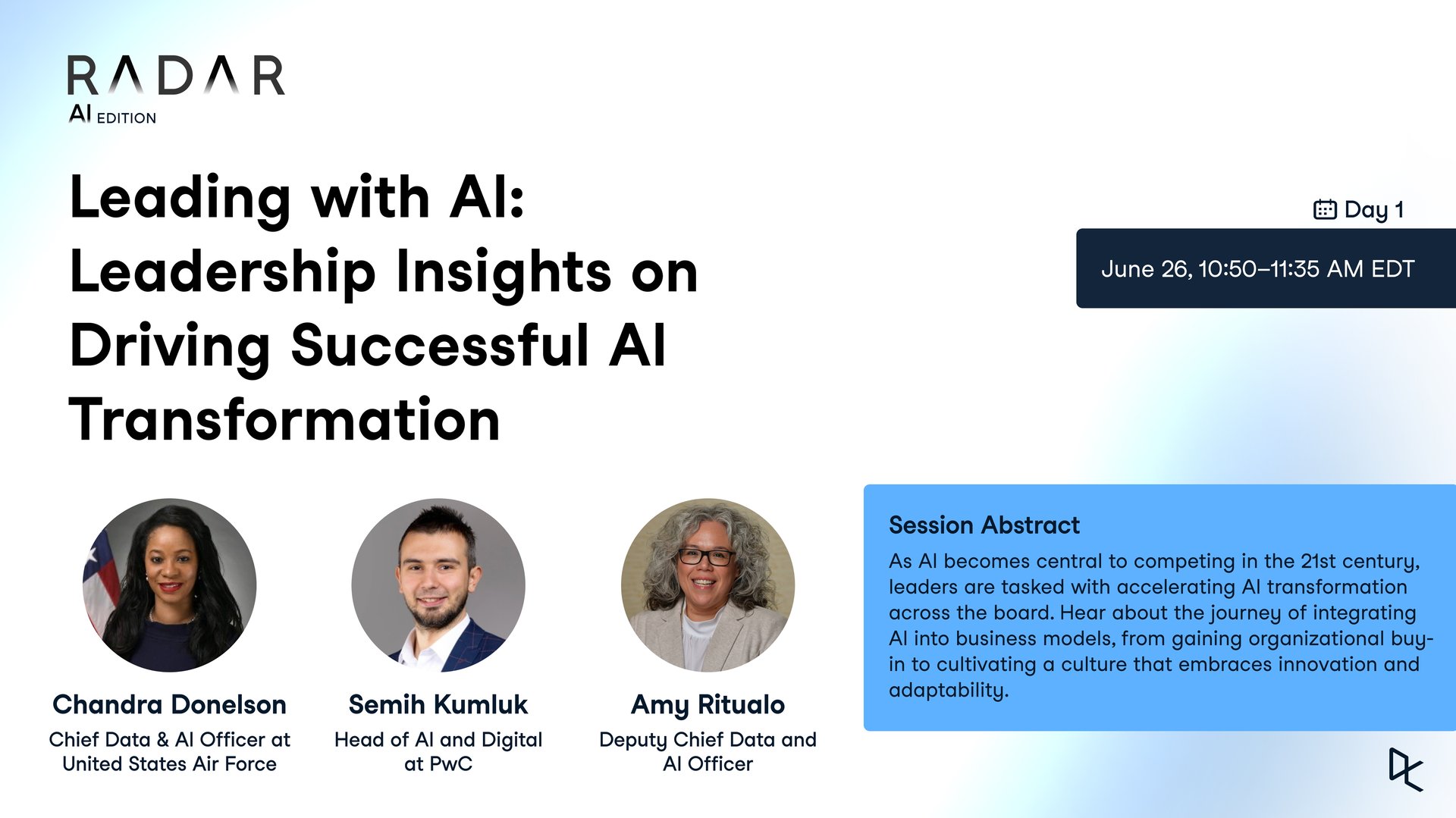Pular para o conteúdo principalSaiba Mais





Falantes
Treinar 2 ou mais pessoas?
Obtenha acesso à biblioteca completa do DataCamp, com relatórios, atribuições, projetos e muito mais centralizadosRelacionado
white paper
The Learning Leader's Guide to AI Literacy
Find out how learning leaders should be approaching AI literacy within their organization, focusing on the what, why, and how of fostering organization-wide AI literacy.white paper
The Learning Leader's Guide to AI Literacy
Find out how learning leaders should be approaching AI literacy within their organization, focusing on the what, why, and how of fostering organization-wide AI literacy.webinar
Driving AI Literacy in Organizations
Gain insight into the growing importance of AI literacy and its role in driving success for modern organizations.webinar
Artificial Intelligence for Business Leaders
We'll answer the questions about AI that you've been too afraid to ask.webinar
A More Human Future in the Era of AI
In this webinar, Brian shares a blueprint for a new system of leadership, designed for leaders and managers who aspire to harness artificial intelligence for the betterment of their organization and the world.webinar
Building Trust in AI: Scaling Responsible AI Within Your Organization
Explore actionable strategies for embedding responsible AI principles across your organization's AI initiatives.Join 5000+ companies and 80% of the Fortune 1000 who use DataCamp to upskill their teams.
Loved by thousands of companies



